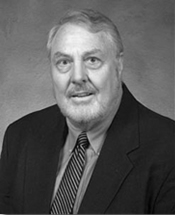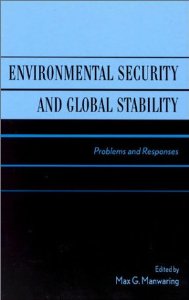Environmental crimes increasingly linked to violence, insecurity
NEW YORK, 3 October 2013 (IRIN) – Organized environmental crime is known to pose a multi-layered threat to human security, yet it has long been treated as a low priority by law enforcers, seen as a fluffy “green” issue that belongs in the domain of environmentalists.
But due to a variety of factors – including its escalation over the past decade, its links to terrorist activities, the rising value of environmental contraband and the clear lack of success among those trying to stem the tide – these crimes are inching their way up the to-do lists of law enforcers, politicians and policymakers.
The recent terror attack on the popular Westgate shopping mall in Nairobi, Kenya, has placed environmental crimes like the ivory and rhino horn trade under increased scrutiny. Al-Shabab, the Islamist militant group that has taken credit for the attack, is widely believed to fund as much as 40 percent of its activities from elephant poaching, or the “blood ivory” trade. The Lord’s Resistance Army, a brutal rebel group active in the Democratic Republic of Congo and Central African Republic, is also known to be funded through elephant poaching.
Rising incomes in Asia have stimulated demand for ivory and rhino horn, leading to skyrocketing levels of poaching. Over the past five years, the rate of rhino horn poaching in South Africa has increased sevenfold as demand in Vietnam and other Asian countries for the horn – used as cancer treatments, aphrodisiacs and status symbols – grows.
“Drop in the ocean”
On the international stage, politicians – alarmed by increasing evidence of links between terrorist organizations and organized environmental crime – are taking a more visible stand against wildlife trafficking. In July, US President Barack Obama set up a taskforce on wildlife trafficking and pledged US$10 million to fight it.
But this is a mere “drop in the ocean”, says Justin Gosling, a senior adviser on environmental organized crime for the Global Initiative Against Transnational Organized Crime, which was recently launched in New York.
“If developing countries really want to assist, they need to put up quite a bit of cash,” he added.
Funded by the governments of Norway and Switzerland, the Global Initiative is a network of leading experts in the field of organized crime, which aims to bring together a wide range of players in government and civil society to find ways to combat illicit trafficking and trade.
At the Global Initiative conference, Gosling presented a draft of The Global Response to Transnational Organized Environmental Crime, a report documenting environmental crimes around the world. Such crimes are on the rise in terms of “variety, volume and value”, the report says, and their impact is far greater than the simple destruction of natural resources and habitats. “They affect human security in the form of conflict, rule of law and access to essentials such as safe drinking water, food sources and shelter,” the report says.
The crimes documented range from illicit trade in plants and animals and illegal logging, fishing and mineral extraction to production and trade of ozone-depleting substances, toxic dumping, and “grey areas” such as large-scale natural resource extraction.
Most vulnerable

Phi Beta Iota: The article is helpful but the reality is much, much worse. No one has done a better job of pulling together the whole than Col Dr. Max Manwaring of the U.S. Army Strategic Studies Institute (SSI). The environment is our habitat.
As long as we ignore whole systems analytics and true cost economics — the integrity of living within our means and within the whole — we will continue to be a crime against humanity.

We are our own worst enemies, and governments that yield to banking and corporate corruption are the enablers of genocide on a scale thousands of times greater than the Jewish holocaust (there have been many other holocausts the Jews take pains to acknowledge).
Max is one of the true moral and intellectual pioneers of our generation, and we take this opportunity to pray for his good health long into the future.
See Also:
Who’s Who in Peace Intelligence: Dr. Col Max Manwaring, US Army Strategic Studies Institute
Dr. Max Manwaring, Research Professor of Military Strategy, Strategic Studies Institute



